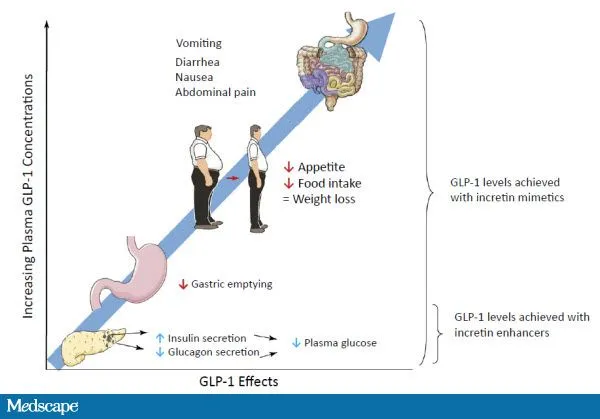The use of LPG-1 analogues in the treatment of type 2 diabetes improves adherence to patients 'treatment and minimizes future complications, according to various experts during the round table' Criteria for the use of LPG-1: dataof real life with Liraglutida ', held in Valencia, with the sponsorship of Novo Nordisk, within the framework of the recent 37th National Congress of the Spanish Society of Primary Care Physicians (Semergen).
These are drugs that act through the receptor of the incretin of the same name, a hormone responsible, among other things, to stimulate insulin secretion."Although you always have to take into account the characteristics of the patient when choosing a therapeutic option or other, thanks to the analogues of LPG-1 we can aspire to more ambitious control objectives and reduce the complications associated with treatment," he saidThe head of the Endocrinology and Nutrition Service of the La Fe de Valencia Hospital, Juan Francisco Merino.
Likewise, the Head of the Department of Endocrinology of Hospitals Quirón Salud Madrid, Esteban Jódar, has assured that, with this new family of drugs, the appearance of some of the most common complications associated with diabetes, such as hypoglycemia, can be prevented or alleviatedor overweight and, with this, improve the quality of life of patients, in addition to their favorable effects in other aspects such as blood pressure or other vascular risk factors.
"LPG-1 analog-based therapy is not a treatment that is limited to a concrete phase of diabetes, because, in reality, when we address the treatment of a patient, we must take into account that it can have different degrees of reserveof insulin, "Merino stressed.
Therefore, the use of LPG-1 can have beneficial effects from the most early phases of the disease to the most advanced.In fact, as indicated by the expert of the Valencian hospital, in the initial phases of diabetes, the analogues of LPG-1 will be beneficial not only in terms of glycemic control, but also in relation to weight controland with the reduction of the risk of hypoglycemia.While, it continues, in advanced phases, the Association of LPG-1 with basal insulin will allow a "very good" control of the patient with less sugar down and with a long-term benefit in their quality of life.
benefit in glycemic controls
From the patient's point of view, they are also well -accepted drugs.In this sense, the expert has stressed that the patient adheres rapidly to treatment because he observes a benefit in glycemic controls and a reduction in the weight sustained.
In any case, specialists have highlighted the importance of prescribing the most appropriate drug to the profile of each patient as soon as possible.To do this, they have affirmed that one of the essential characteristics to take into account the new antidiabetic therapies should be their ability to achieve the glycemic control objectives minimizing the risk of hypoglycemia.
"GLP-1 receiver agonists contribute these advantages over classical treatments. In fact, the latest studies data on one of the first drugs of this type, lyreglutid, based on the usual clinical practice, not only confirm their goodPercentages of efficiency and safety in clinical trials, but also increase them, "Jódar argued.
Likewise, this expert has referred to the results of the Diabetes Monitor study, carried out in Spain by the Diabetes Group of the Spanish Society of Endocrinology and Nutrition (SEEN)."Your data supports the efficacy of liraglutida to achieve more than one reduction point in theglycosylated hemoglobin.In addition, there were significant reductions in basal blood glucose, a medium weight loss of almost 5 kilos, improvements in systolic and diastolic blood pressure and cholesterol reductions, among other benefits, "he emphasized.
Finally, Jódar has insisted that this drug therapeutic group is "very valuable" for both diabetologists and endocrine, since it allows to reduce glycemia without inducing hypoglycemia, which not only greatly affect the patient's quality of life but also thatThey also increase the risk of cardiovascular problems and various complications, such as fractures.
"And, in addition, it induces weight loss and appetite reduction both at the central level and power of satiety when delaying gastric emptying. All this, together with a reduction in blood pressure, largely neutralizes cardiovascular adverse effects and improveNotorious way the patient's quality of life with type 2 diabetes, "he concluded.


